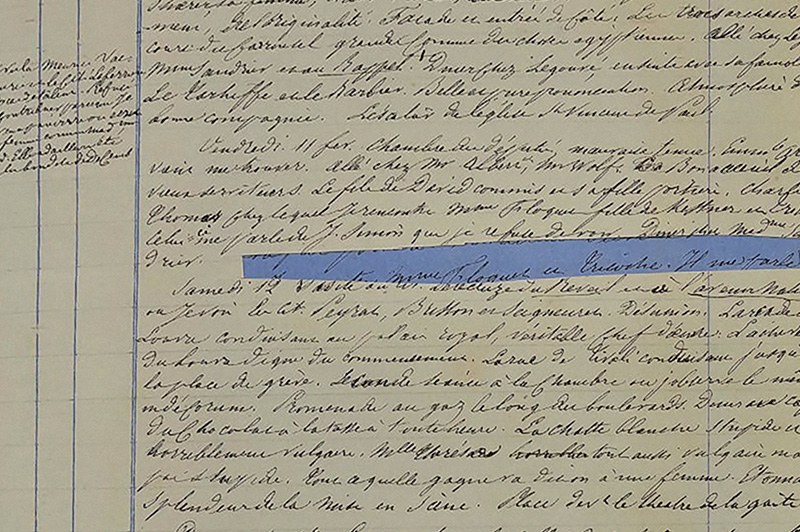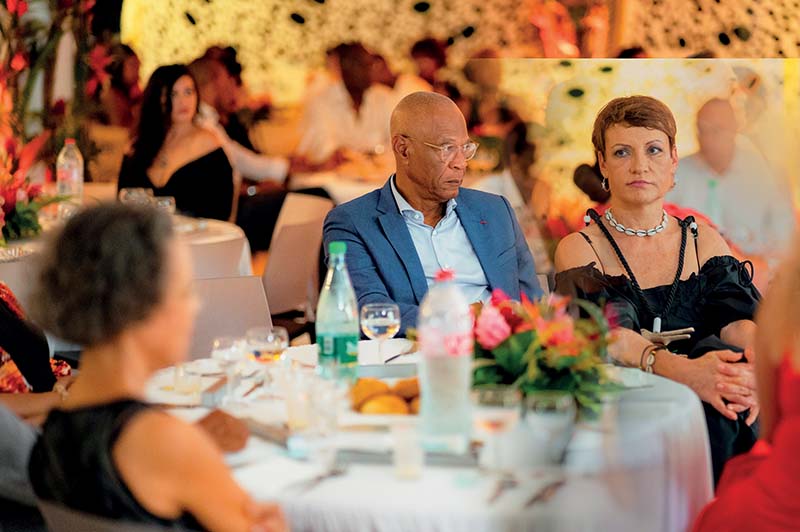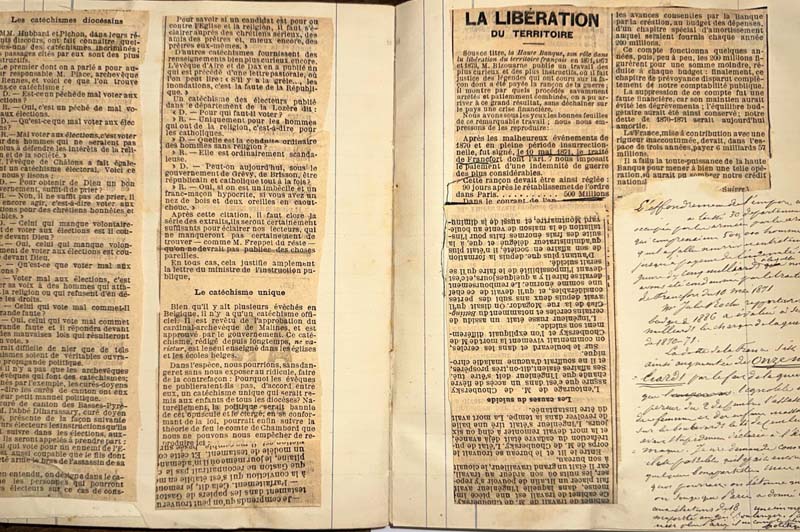
Doctors Pierre and Corinne Sainte-Luce bought a manuscript of great historic value at auction: the diary of former deputy Victor Schoelcher. After being scanned, it will be made available to the public.
ONAIR- Pierre Sainte-Luce, how did you know this manuscript was going to be for sale?
Pierre Sainte-Luce – By way of the Foundation for the Memory of Slavery, of which our family is a founding member, we learned that the manuscript would be up for auction at Drouot. On November 10, 2022, our daughter Marion, who lives in Paris, was able to bid at the auction, while we followed on the telephone from Guadeloupe. We had the highest bid. You can imagine the tension, and finally the joy once we made the acquisition.
OA – Who did the diary belong to before the sale and in what condition did you find it?
PSL – The manuscript belonged to the French company, Aristophil, which no longer exists. They were selling shares in the possession of documents that shape our written heritage. This document is in very good shape in spite of its advanced age of 153 years. It contains about 170 pages of handwritten text and collages of press clippings.

OA – What does it represent?
PSL – It is a personal diary written by Victor Schoelcher during the last 20 years of his life. The author reflects on his commitment to the abolition of slavery in the French colonies and on his political career, especially under the Second Republic, detailing his activities and his encounters. Other than its importance as a remembrance, such a document is an invaluable source of information about his personality, about French political life, and the relationships with the overseas territories in the 19th century.
OA – What time period is covered in this diary?
PSL – It covers the period from 1870 to 1893. In 1870, after many years in exile in England, Schoelcher returned to France after its defeat in Sudan. Following the abdication of Napoléon III, Schoelcher was reelected as the deputy from Martinique in the National Assembly from 1871 to 1875. In December 1875, he was elected as a senator-for-life in the Assembly National, a post he held until his death on December 25, 1893, at the age of 89, in Houilles in the Yvelines region of France.
OA – What is the destiny of his manuscript?
PSL – I think a diary of this nature should be made available to the public and support the work of historians who need access to first-hand sources to properly conduct their research. This document will also enrich our documented heritage, which is important for researchers in the social sciences. We presented it to representatives of the government and to board members of the FME. They feel it is important to historians who need access to it. Contacts have been made at the Sorbonne and the University of the Antilles, and showings will be proposed to museums around the world, as well as town halls in places where Victor Schoelcher lived. After digitalization, the manuscript will be kept in a conservation center in Guadeloupe.
OA – What did you feel when you first opened it?
PSL – Holding this diary in our hands was an extremely emotional moment due to what its acquisition represents symbolically. In the final pages of the manuscript, Schoelcher modestly evokes his illness, the end of his life, a supplementary source of research. The ashes of Victor Schoelcher were transferred to the Panthéon in 1949, at the suggestion of Gaston Monnerville. That gives him the status of a “great man of the Nation.”

OA – How does this acquisition play a part in your actions and your values?
PSL – Our purchase follows the blueprint of our material and immaterial heritage achievements. We are the owners and protectors of one of the oldest habitations in Martinique, the Habitation Fonds Rousseau located in the town of Schoelcher. It was an industrial center for sugar and rum production as of 1660 and exploited hundreds of men and women reduced to slavery. It is a gesture of reconciliation for an Antilles family to appropriate its history. It is also a manifestation of the “Family of the World.”
PIERRE SAINTE-LUCE, DOCTOR, BUSINESSMAN, WRITER,AND ARTS PATRON ~
Pierre Sainte-Luce was born on December 16, 1956 in Terre-de-Bas, in Les Saintes, part of the Guadeloupe archipelago. After practicing 10 years in angiology, he and his wife created three health centers for the most fragile of the population, then invested in the purchase and renovation of the Hotel Arawak in Gosier. He is a doctor of sociology and passionate about heritage, the arts, and history. His family owns two historical sites dating from the 17th and 18th century: The Habitation Fonds Rousseau in Martinique and Fidelin Pottery in Terre-de-Bas, in Les Saintes. Pierre Sainte-Luce is the author of Colored, a novel which celebrates cultural melting pots. He recently published Transfiguration, a novel/essay that provides the keys to understanding our societies through a human epic. President of the patrons for the Foundation for the Memory of Slavery, he was named a Chevalier de la Légion d’Honneur.
Auteur : Agnès Monlouis-Félicité

